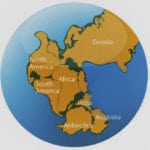 History
History  History
History  Health
Health 10 Everyday Activities That Secretly Alter Consciousness
 History
History Top 10 Historical Disasters Caused by Someone Calling in Sick
 Animals
Animals 10 New Shark Secrets That Recently Dropped
 Movies and TV
Movies and TV 10 Forgotten Realities of Early Live Television Broadcasts
 Technology
Technology 10 Stopgap Technologies That Became Industry Standards
 Weird Stuff
Weird Stuff 10 Wild Facts About Taxidermy That You Probably Didn’t Know
 Travel
Travel 10 Beautiful Travel Destinations (That Will Kill You)
 Miscellaneous
Miscellaneous 10 Modern Marriage Rituals Born from Corporate Branding
 Weird Stuff
Weird Stuff Ten Bizarre Visions of 2026 from Fiction
 History
History 10 “Modern” Problems with Surprising Historical Analogs
 Health
Health 10 Everyday Activities That Secretly Alter Consciousness
 History
History Top 10 Historical Disasters Caused by Someone Calling in Sick
Who's Behind Listverse?

Jamie Frater
Head Editor
Jamie founded Listverse due to an insatiable desire to share fascinating, obscure, and bizarre facts. He has been a guest speaker on numerous national radio and television stations and is a five time published author.
More About Us Animals
Animals 10 New Shark Secrets That Recently Dropped
 Movies and TV
Movies and TV 10 Forgotten Realities of Early Live Television Broadcasts
 Technology
Technology 10 Stopgap Technologies That Became Industry Standards
 Weird Stuff
Weird Stuff 10 Wild Facts About Taxidermy That You Probably Didn’t Know
 Travel
Travel 10 Beautiful Travel Destinations (That Will Kill You)
 Miscellaneous
Miscellaneous 10 Modern Marriage Rituals Born from Corporate Branding
 Weird Stuff
Weird Stuff Ten Bizarre Visions of 2026 from Fiction
10 Dark Reasons Saudi Arabia May Be Our Deadliest Ally
In September 2015, it was announced that Saudi Arabia would be heading a key human rights panel for the UN. In practical terms, this was like asking the Joker to lead the Justice League of America. Saudi Arabia is notorious for refusing women permission to drive and having a flagrant disregard for principles of free speech. But the UN appointment highlighted some even darker truths about our regional ally. Far from being a necessary evil, the Wahhabite kingdom may just be plain old evil.
10 Horrifying Executions
As of 2015, only about one-third of all countries worldwide actively enforce the death penalty. Most severely limit their number of annual executions. So far this year, the US has put to death only 20 people—a number that still makes it one of the top executioners in the world. By contrast, Saudi Arabia has killed more than 100 people.
The Saudis’ methods are often brutal in the extreme. Executions take place in public squares and usually involve beheading with a ceremonial sword. However, instances of public stoning have been reported in rural provinces. In most cases, the body is then left to rot in the sun as a warning to others. According to the Daily Beast, Saudi Arabia has so far beheaded more people than ISIS in the first eight months of 2015. Worldwide, only Iran and China execute more people per year than Saudi Arabia.
All of this might be morally justifiable if the crimes committed were particularly heinous. They’re often anything but. According to Amnesty International, nearly half of all executions in Saudi Arabia are for minor drug possession offenses. Other capital crimes include apostasy (renouncing Islam), adultery, and “witchcraft.”
The accused are frequently denied access to lawyers and tried in secret. They also have “confessions” extracted under torture. Sometimes, they’re not even told what crime they’ve committed. Juveniles are also tried and executed as adults, sometimes in stunningly gruesome ways.
9 Public Crucifixion
In 2012, 17-year-old Ali al-Nimr left his home to take part in Arab Spring–inspired, pro-democracy protests in his native province of Qatif. What happened next is unclear. According to witnesses, Ali simply joined in with marches and chanting. According to Saudi authorities, he threw a Molotov cocktail. Either way, the outcome was the same. As of late September 2015, Ali is on the verge of being publicly crucified for his actions.
In most cases, a sentence like that would be strictly figurative. In Ali’s case, it’s horrifyingly literal. Intent on making an example of him, Saudi authorities have ruled that his headless corpse will be strung up on a cross and displayed publicly. If previous cases of crucifixion in the kingdom are anything to go by, members of the public will be encouraged to witness the mutilated body.
The case is doubly suspicious because Ali is the nephew of a noted Saudi political activist. This has led many to speculate that his gruesome fate has less to do with punishing an offender and more to do with sending a message to his uncle.
8 No Freedom Of Expression
Think about the last time you talked about atheism. Maybe you wrote a comment on the Internet or said something to a friend—even if that “something” was simply saying that you’re unconvinced by atheism. Are you picturing the scene? In Saudi Arabia, that would be the moment that you became a terrorist.
Since 2014, the kingdom has made it illegal to talk about atheism in any way. To do so publicly will see you arrested as a terrorist and tortured. Insane as this is, it’s just one example of Saudi Arabia’s relentless war on freedom of speech.
Sometimes, this war scales the heights of absurdity. In April 2015, a journalist for pro-reform media outlet Al-Watan Online was charged with cybercrime offenses and given seven days in jail. His crime was writing an article about power cuts in a Saudi prison.
More seriously, pro-reform blogger Raef Badawi was sentenced to 10 years in prison and 1,000 lashes for allegedly “insulting Islam.” He was also fined 1 million Saudi riyals ($267,000). The charge was brought after he dared to put up a website where Saudis could express liberal views.
The kingdom has one of the worst levels of press freedom in the world. According to Freedom House, Russia, Afghanistan, and Mexico (where journalists are routinely murdered) all have a freer press than Saudi Arabia.
7 They’re One Of The World’s Worst Police States
In November 2014, Mikhlif bin Daham al-Shammari was arrested by the Saudi authorities. His crime was holding an informal private gathering and tweeting about it, a crime defined in his trial as “sitting with the Shi’a.” For this, he received two years in prison and 200 lashes.
For the nonroyal citizens of Saudi Arabia, life is one long litany of human rights abuses and Orwellian surveillance that would surpass anything the Stasi had to offer. In 2013, one human rights activist received an eight-year prison sentence for “slandering the king.” Others have been thrown in jail for helping abused women escape their husbands or for liking Facebook posts that advocated democratic reform.
In the Eastern provinces, the country’s Shiite minority are routinely abused and tortured on the flimsiest of pretexts. One woman was publicly flogged for simply sending a text with information about Shiite religious services.
According to Freedom House, the kingdom is one of the worst police states in the world. In their 2015 global rankings, Saudi Arabia scored 7/7 for abuses, the highest possible score. For perspective, this makes Saudi Arabia equal to Uzbekistan, Turkmenistan, and North Korea in terms of freedom for its citizens.
6 Migrant Worker Abuse
Like many Gulf countries, Saudi Arabia runs on its migrant labor force. At least nine million foreign workers live in the country, working in every sector from construction to oil to services. They account for roughly half of the total workforce and have allowed the kingdom to become an economic giant. In return, authorities treat them appallingly.
Using the kafala system of sponsorship, arriving workers are tied to their employers in Saudi Arabia. Any non-Saudi wanting to change jobs or leave the country needs his employer’s express written consent. Unsurprisingly, this system is open to abuse. Employers often confiscate passports and withhold wages, forcing migrants to work against their will. Unable to change employers or leave the country, workers become trapped in slave labor conditions. Those who complain to authorities often find themselves arrested on charges of “sorcery.”
For female workers in the domestic industry, things are even worse. Human Rights Watch reports frequent cases of physical and sexual abuse, starvation, and forced confinement. As migrants have few or no rights, police rarely take action against those who rape or otherwise abuse their employees. Vigilante groups are also allowed to attack migrants unchecked. In one case, three Ethiopians were killed by a lynch mob while police just stood and watched.
5 Criminal Diplomats
Remember the evil diplomats in Lethal Weapon 2? Those guys used their diplomatic immunity to get away with all sorts of nefarious crimes. Apparently, the Saudi diplomatic corps has been taking notes. Over the years, an insane number of Saudi diplomats have committed violent crimes in their host nations and then used their immunity to escape punishment.
In September 2015, a diplomat posted to Delhi kidnapped two Nepali maids, beat them, and starved them. The diplomat and seven other men also repeatedly gang-raped these women. Their ordeal lasted 15 days. When Indian authorities were alerted, the rapist fled to the Saudi embassy and claimed diplomatic immunity. In all likelihood, he will never be tried for his crimes.
Incredibly, this isn’t the worst crime a Saudi diplomat has committed. In 2004, a 41-year-old man posted to London was arrested for raping an 11-year-old girl. Once again, his immunity spared him jail time. In the 1980s, a Saudi prince living in Miami kept a whole group of workers as virtual slaves, only to abscond when police descended. Once again, the kingdom protected him.
What’s most egregious about all this is that countries can choose to waive their diplomats’ immunity. When Georgian diplomat Gueorgui Makharadze drunkenly caused a fatal car accident in the US, Georgia allowed him to be tried in America. By protecting their rapist diplomats, Saudi Arabia is essentially sticking a gigantic middle finger in the face of the world.
4 Horrifying War Crimes
In March 2015, Saudi Arabia led a coalition of forces into unleashing air strikes on neighboring Yemen. At the time, Yemen was on the brink of collapse. Houthi rebels had launched attacks while Al-Qaeda and ISIS had gained footholds. Fast-forward six months. Not only is Yemen still on the verge of imploding but Saudi forces are also slaughtering civilians in record numbers.
Rather than carry out surgical strikes, the Saudis have declared that the entire rebel-held province of Saada is a target. Air strikes have been launched against everything from ancient mosques and gas stations to restaurants, homes, and shopping malls. To make matters worse, the Saudi weapons of choice appear to be cluster bombs.
Missiles that detonate and hurl little “bomblets” over a vast area, cluster bombs are known for failing to explode until days or even years later. Unfortunately, those who are standing around the bomblets when they finally detonate are nearly always civilians. Amnesty argues that the use of cluster bombs constitutes a war crime.
At the same time, a Saudi blockade of Yemen has tipped the country toward the brink of starvation. Ships carrying food and aid are being arbitrarily stopped, causing over 10 million people to be considered “food insecure” in July 2015.
As of mid-September 2015, the number of people on the brink of starvation has risen to 12 million. Water and medicine are also nonexistent. Speaking to The Independent, the director of Save the Children Yemen said the blockade had created the largest humanitarian crisis in the world.
3 Gender Apartheid
We all know that Saudi Arabia doesn’t allow women to drive. We’ve also heard the stories about women being unable to get jobs or leave the country without the permission of a male guardian. But sexism in Saudi society goes deeper than a handful of dumb restrictions. The kingdom’s own Princess Sahar has called it “gender apartheid.”
Women who don’t follow the country’s extremely sexist laws can wind up being harassed, detained, jailed, or worse. In December 2014, two women caught driving a car were tried on terrorism charges and thrown in prison. In another case, Souad al-Shammari was arrested for sending one frustrated tweet criticizing the male guardian system, which tracks women’s movements at all times and sends text alerts to their guardians if they try to leave the country.
Even Saudi royals have suffered under this system. Along with three of her sisters, Princess Sahar has been under house arrest for more than a decade. All four have been drugged, deprived of food and water, and abused by their father, King Abdullah. Apparently, their crime was bringing up the topic of women’s rights. Their father was later heralded on his deathbed as a “strong advocate for women’s rights.”
2 The Fountainhead Of Terrorism
The official religion of Saudi Arabia is Wahhabism, an extremely puritanical form of Islam that arose in the 18th century. When people talk about Islamic extremism, this is typically the branch they mean. It’s the Islam that segregates the sexes, goes bananas if you draw a picture of Muhammad, calls for extreme interpretations of sharia law, and considers other religions (including other branches of Islam) illegitimate. In 2013, the European Parliament called Wahhabism the main source of global terrorism.
Armed with bucketloads of petrodollars, Saudi Arabia has poured money into spreading Wahhabism across the Muslim world. In the past 30 years, it’s believed that the kingdom has spent $100 billion to promote its extreme version of Islam, over 14 times what the Soviets spent promoting communism in 70 years. In the West, that would be like giving Westboro Baptist Church the power to outspend the Catholic Church and the Evangelicals combined so that Westboro could push its psychopathic interpretation of Christianity on everyone.
In addition, plenty of government officials suspect the kingdom of actively arming and funding the groups that merged to form ISIS. In 2009, Hillary Clinton called Saudi donors “the most significant source of funding to Sunni terrorist groups worldwide.” Others have called the Saudis the “fountainhead of terrorism.” Officials who chaired the Congressional inquiry into 9/11 claim that the redacted 28 pages show that the kingdom was complicit in funding this terror attack on America.
1 Western Complicity
When it was recently announced that Saudi Arabia would head an international human rights panel for the UN, Western leaders fell over each other congratulating the Saudis. The US officially “welcomed” the news. And there, in a nutshell, is why the Gulf kingdom can get away with exporting terrorism and committing war crimes. Our leaders can’t get enough of the Saudis.
In early September 2015, the Pentagon agreed to a $1 billion arms deal to supply Saudi Arabia with weapons, despite firm evidence that US weapons are used to massacre civilians and commit bloody war crimes in Yemen. Meanwhile, the UK engages in annual trade with the Saudis of $15 billion. To honor King Abdullah, they flew government flags at half-mast when he died in January 2015. France also makes billions in arms sales to the Saudis and defends the kingdom as an invaluable “ally.”
The result of all this money is a world where officials never criticize Saudi policy, even though it spreads terrorism, bombs civilians, and represses its own population. As Saudi Arabia works to destabilize the region, our leaders line up to sing the country’s praises, calling its despotic heads of state great “reformers.” Until our governments do otherwise, we should expect things in the Middle East to only get worse.








